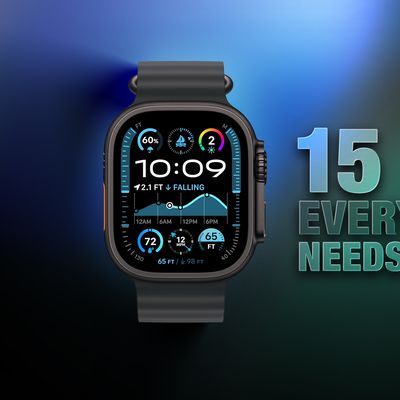Apple Gives Developers More Time to Update 'Outdated' Apps Before Removal
Late last week, controversy erupted after Apple began notifying some developers that their apps that had not been updated in some time would be removed from the App Store as part of an "App Store Improvements" project to clean up "outdated" apps.

Many of the affected developers objected to Apple's policy, noting that their apps continued to function just fine despite a lack of updates, highlighting the amount of work that might be needed to submit even a minor update, and pointing out that many apps can exist as finished works without a need for continual updates.
Apple has now shared a new developer update clarifying its App Store Improvements policies and extending the amount of time it is giving developers to update their affected apps from 30 days to 90 days.
Apple says that apps that have not been updated within the past three years and which do not meet a minimum threshold for downloads ("not been downloaded at all or extremely few times during a rolling 12 month period") are subject to the policy, with developers receiving notices via email.
As part of the App Store Improvements process, developers of apps that have not been updated within the last three years and fail to meet a minimal download threshold — meaning the app has not been downloaded at all or extremely few times during a rolling 12 month period — receive an email notifying them that their app has been identified for possible removal from the App Store.
Developers can either appeal the pending removal or submit an update within 90 days in order to keep their apps live on the App Store. Apps that are removed will continue to function normally for users who previously downloaded them.
Popular Stories
Apple is looking for a "breakthrough" with its push into wearable AI devices, including an "AirTag-sized pendant," according to Bloomberg's Mark Gurman.
In a report this week, he said the pendant is reminiscent of the failed Humane AI Pin, but it would be an iPhone accessory rather than a standalone product.
The pendant would feature an "always-on" camera and a microphone for Siri voice...
Apple Watch is now eleven generations in, and packed with useful features that are easy to miss at first glance. To help you get more out of your new device, we've rounded up 15 practical tips you might not have discovered yet, including a few that long-time users often overlook.
Bounce Between Two Apps
On your Apple Watch, double-press the Digital Crown to see a deck of all currently...
Apple's iPhone development roadmap runs several years into the future and the company is continually working with suppliers on several successive iPhone models at the same time, which is why we often get rumored features months ahead of launch. The iPhone 18 series is no different, and we already have a good idea of what to expect for the iPhone 18 Pro and iPhone 18 Pro Max.
One thing worth...
Apple is expected to launch a new foldable iPhone this year, based on multiple rumors and credible sources. The long-awaited device has been rumored for years now, but signs increasingly suggest that Apple will release its first foldable device in 2026.
Subscribe to the MacRumors YouTube channel for more videos.
Below, we've collated an updated set of key details that have been leaked about ...
Apple will announce its rumored low-cost MacBook at its event on March 4, with the device coming in a selection of bold color options, according to a known leaker.
Earlier this week, Apple announced a "special Apple Experience" for the media in New York, London, and Shanghai, taking place on March 4, 2026 at 9:00am ET.
Posting on Weibo, the leaker known as "Instant Digital" said that the...





















